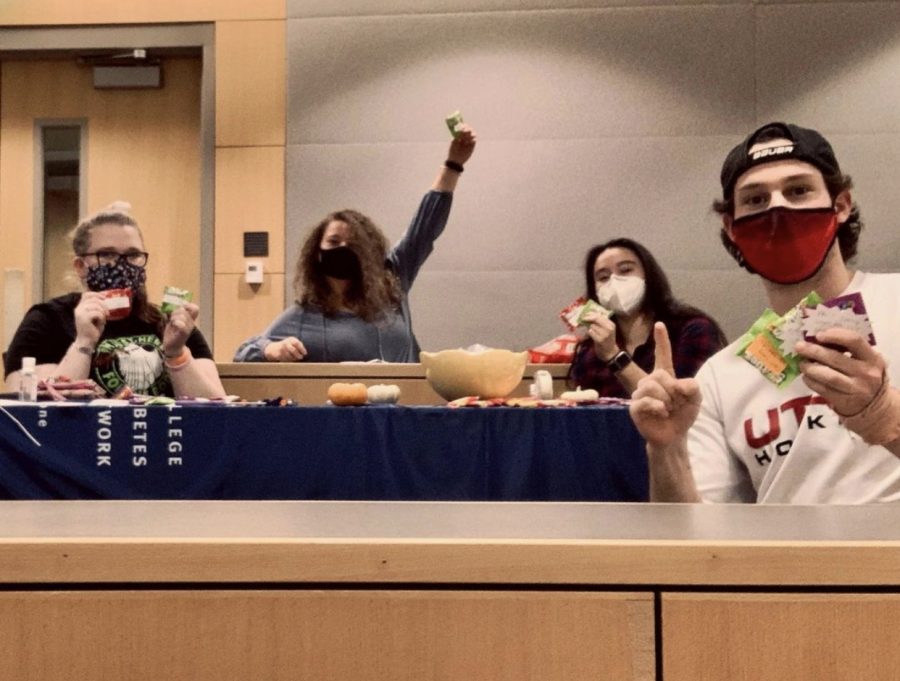Type 1 Diabetics Confront Misconceptions During National Diabetes Awareness Month
College Diabetes Network U chapter at their Halloween meeting. (Photo Courtesy of College Diabetes Network U chapter)
December 1, 2020
November is National Diabetes Awareness Month. Through the month, Type 1 diabetics work to bring awareness to the disease and clarify common misconceptions.
University of Utah student Abby Blackett said one misconception people have is someone gets diabetes from eating too much sugar.
Type 1 diabetes, which is different than metabolic based Type 2 diabetes, does not come from eating any amount of specific foods. According to the Juvenile Diabetes Research Foundation, “Type 1 diabetes is actually caused by the body’s immune system attacking and destroying the cells in your pancreas that produce insulin.”
Sophomore ballet major Daniel Cohen said people often say diabetes isn’t that serious, but research claims that diabetes causes more deaths per year than breast cancer and AIDS combined — and, having diabetes nearly doubles the chance of having a heart attack.
According to The Mayo Clinic, signs of Type 1 diabetes include rapidly losing weight, increased thirst, increased urination, blurred vision, extreme hunger, irritability or other sudden mood changes and fatigue.
Type 1 diabetic Tiffany Cook said another common misconception is all a diabetic has to do is take a shot to regulate their diabetes.
“The most frustrating thing I’ve been told about my diabetes is that it’s easy to manage it,” Cohen said.
Besides taking anywhere from 4-10 shots a day, Type 1 diabetics have to monitor the food they eat, check their blood sugar multiple times a day and make sure they keep their bodies healthy. In the food they eat, they’re counting carbs so that they can figure out the right insulin amount to administer.
The National Institute of Health said that diabetics make up to 180 healthcare-related decisions in a day.
Anna Blaes, a junior at the U who is studying costume design, said that people will ask how someone can have diabetes if they are not overweight.
“I am an average-sized woman bordering on the thinner side, and when I tell people I am diabetic, I am often met with confusion simply because I do not fit their physical stereotype for diabetics. The confusion is upsetting because it makes me feel that Type 1 is dismissed easily and not recognized for how much it changes our lives,” Blaes said.
Since Type 2 diabetes can present itself when a less healthy lifestyle is prevalent, a lot of people associate weight with diabetes.
Another student and Type 1 diabetic, Bailey Irvin, said that it’s frustrating when people try to offer their “cures” or homemade remedies for diabetes.
There is no cure for Type 1 diabetes. The Juvenile Diabetic Research Foundations says that in order for a cure to exist, they need to stop the immune system from destroying the cells that make insulin and replace the cells that have been lost.
U students with diabetes can join the U’s chapter of the College Diabetes Network, and their Instagram has more information about Type 1 diabetes or how to get involved.







